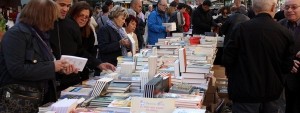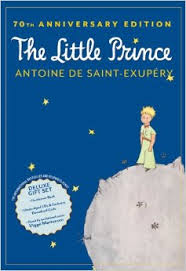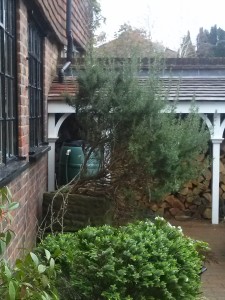I always like to read what other writers have to say about writing. It is comforting to discover that I use the same strategies or struggle with the same problems as people I admire, and I often get ideas for new ways to structure my time or my ideas or my words. Today, I read celebrated author Zadie Smith’s 10 rules for writing, and the first rule really resonated with me. It made that younger Virginia inside me sit up. (If that sounds impossibly weird, check out my last post.)
Smith’s first rule is this:
1. When still a child, make sure you read a lot of books. Spend more time doing this than anything else.
The thing is that Smith writes for adults, and I expect that most of the people who are interested in her rules for writing are also adults. Some adults may respond with relief–thank goodness I read a lot when I was a child. I followed the rule. But others may respond with sinking panic–I didn’t know. I didn’t read enough. It’s too late.
Thankfully, I am in the first group. When still a child, I read a lot of books. I spent more time doing this than anything else. I read all the time. I read everything. From cereal boxes to encyclopedias to Little Women. I also re-read. A lot. And I think this is almost as important as reading in the first place. As an adult, I am aware everyday of what a difference all that reading made to me. In fact, all that reading actually made me. The books I read and the intellectual and emotional business of reading them gave me a bottomless bag of tools (think Hermione’s charmed handbag) to use as I build my life and navigate the world.
For my child readers (and any children who happen upon Smith’s advice), rule #1 is straightforward. It is a command. Go forth, children, and read! Read everything! Read all the time! Play outside and make forts out of blankets and experiment in the kitchen–do other wonderful, active things, too, but take a book with you. When Capture the Flag is over, lean against a friendly tree and read. When the blanket fort is stable, crawl inside with a flashlight and read. When you’ve concocted a delicious new drink, take it to the couch and sip it while you read. Read. Everything. All the time. You will carry what you read with you for the rest of your life, and the more you read, the richer you will be.
But what about the adults who didn’t know about Smith’s first rule? The ones who didn’t read all the time. What are these inadvertent rule-breakers to do? When I read the rule with it’s strange present tense–just right for children but too late for adults–I felt sadness for those who didn’t know. Who didn’t read. But then the sadness wandered off because I don’t think it’s too late.
The adult who was not a reading child is not doomed to a life without books. That adult has some catching up to do, certainly, but she can start now. Right now. Read this blog. Cruise around and read the rest of the site. Follow the links and read other sites. Pick up a book, any book, whichever one is closest. Read it. Read the next closest one. Go to the library and check out a stack of books. Surround yourself with them so they are all close at hand and read them all. Read the acknowledgements and the appendices and the blurbs and the copyright page. Read the next book. And the next. Read them all again. And again. Read everything. Read all the time.
Even if you come to reading late, books will still sink into your sense of self. They will still guide you as you move through life. They will still make you a better writer and a better person. They will still make you.
So I respectfully offer this important revision to Smith’s rule #1:
1. Whether you are a child or an adult, make sure you read a lot of books. Spend more time doing this than anything else.







 I am very fortunate to be on a two-week trip to England and Greece for the purpose of gathering ideas. I’ve spent time in the British Library, which is a massive institution that houses 170 million books, and I’ve spent time at Delphi and the Parthenon, both well-curated ancient sites. These have been rich experiences that have led me to new ideas and deeper understandings of old ideas. Many of the ideas feature stones, such as the fallen stones of ancient temples in Delphi.
I am very fortunate to be on a two-week trip to England and Greece for the purpose of gathering ideas. I’ve spent time in the British Library, which is a massive institution that houses 170 million books, and I’ve spent time at Delphi and the Parthenon, both well-curated ancient sites. These have been rich experiences that have led me to new ideas and deeper understandings of old ideas. Many of the ideas feature stones, such as the fallen stones of ancient temples in Delphi. I have also wandered… through the streets of Athens and the narrow roads of Galixidi, a 19th-century shipping town on the Gulf of Corinth… through the brick and stone arches of a Byzantine monastery in the Parnassus mountains… through the pastures and woods of West Sussex… and through the galleries of the British Museum, crowded with antiquities, some of which came originally from Athens, many of which are carved from stone.
I have also wandered… through the streets of Athens and the narrow roads of Galixidi, a 19th-century shipping town on the Gulf of Corinth… through the brick and stone arches of a Byzantine monastery in the Parnassus mountains… through the pastures and woods of West Sussex… and through the galleries of the British Museum, crowded with antiquities, some of which came originally from Athens, many of which are carved from stone. pected rosemary bush, which grows in the town of Cuckfield (pronounced Cookfield) whose name I borrowed for the fictional town in my novel. Like an archaeologist digging in Athens, I’ve unearthed one of the stones that formed the base of my soup.
pected rosemary bush, which grows in the town of Cuckfield (pronounced Cookfield) whose name I borrowed for the fictional town in my novel. Like an archaeologist digging in Athens, I’ve unearthed one of the stones that formed the base of my soup.